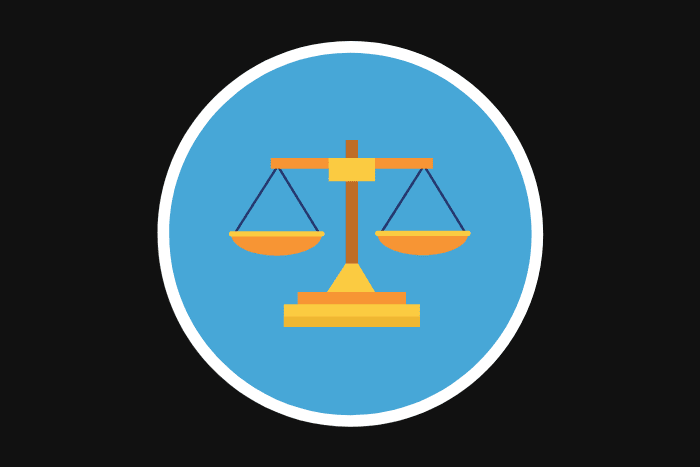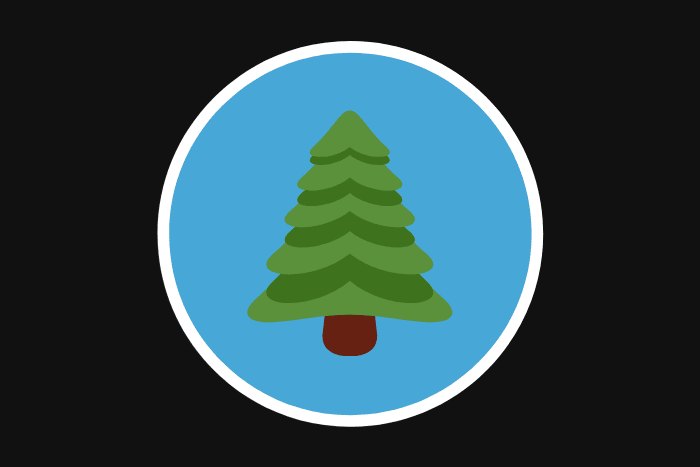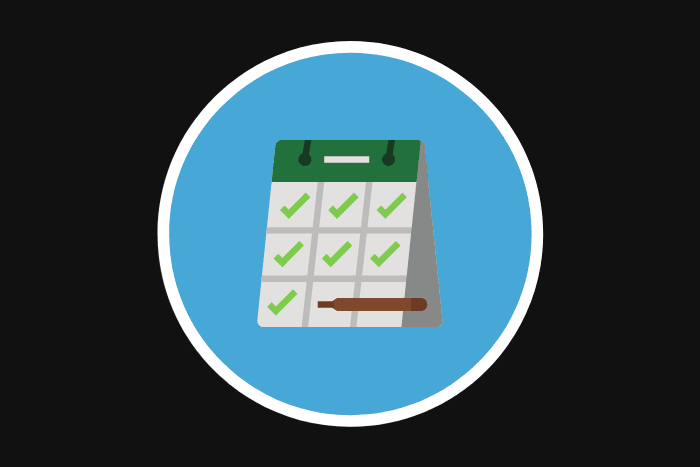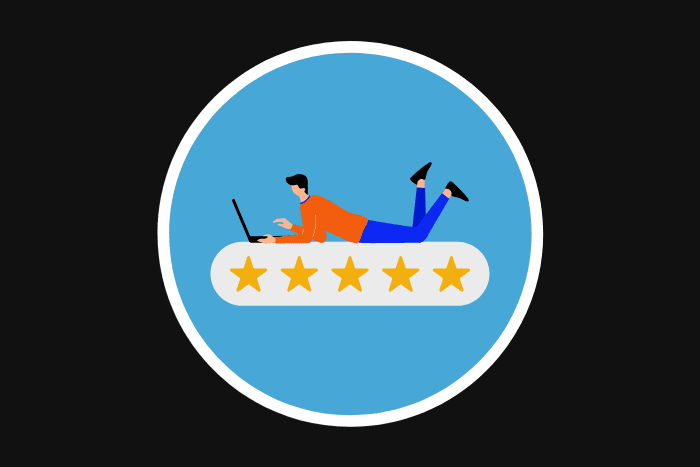Content marketing can help you establish authority in your niche, convert and retain customers, and create awareness for your brand.
And the key to content marketing is consistently developing and publishing high-quality, valuable content.
Easy right?
Not quite.
Content creation is often easier said than done.
Between coming up with a topic for your content, researching, writing the copy, creating visuals, publishing it on schedule, and distributing the finished product through email, targeted outreach, and social media, content creation is a big task with a lot of moving parts.
But worry not, because we’ve put together this easy-to-digest guide to make creation less tear-your-hair-out and more happy-dance-on-the-bar-room-table.
Let’s do this!
What is Content Creation?
Content creation is the process of creating written, auditory, or visual content to educate, entertain, or elicit a desired action from your target audience.
As a cornerstone of content marketing strategy and blogging, digital content comes in many forms, including infographics, podcasts, articles, or video, and can be published and shared on any platform.
9 Tips for Kick-Butt Content Creation
Ensure you keep pumping out successful content for your target audience with these 9 content creation tips.
1. Strike a Balance Between Quality and Quantity

One reason many businesses include content marketing in their marketing strategies is to increase traffic from search engines.
Publishing content provides Google with more opportunities to identify relevant search terms and rank your website in search results.
So it makes sense that the more content you publish, the more keywords you can rank for, and the more traffic you’ll get, right?
Not so fast.
Online, competition is fierce. 7.5 million blog posts are published every single day, not to mention the videos uploaded, podcasts recorded, or social media content posted.
So, mediocrity won’t be enough to attract and retain your audience in 2023, let alone rank for your keyword targets in Google.
Producing best-in-class content is the only sure-fire way to bring people back for more.
And unless you have a team of talented marketers who can develop truly excellent content at an impressive velocity, you need to strike a balance between filling your editorial calendar and ensuring your content truly is the best on your topic.
Study the blogs or websites you’re competing against. Make it your goal to improve on the competition’s SEO and keyword research and build a better finished product.
2. Write Attention-Grabbing Headlines

You only get one chance to make a first impression, and your headline is your audience’s introduction to your content.
But they have an abundance of material to choose from. If your headline fails to grab the attention of your readers, they’ll click on the one that does (your competitor’s).
Headlines have lasting impacts on your traffic that span beyond social media sharing.
Clickthrough rate is a search engine ranking factor, so even if your content does make it to the first page for your target keyword, if your headline doesn’t entice users to click, it won’t stay there.
So being that the title of your content is the most important statement you can make, you need to nail your headlines.
Use this checklist while writing headlines to ensure you come up with the best one every time:
- Useful: How does it help?
- Unique: How is it different?
- Ultra Specific: How does it give details?
- Urgent: How does it encourage the reader to act?
Utilizing the 4 U’s is a simple, yet tried and tested formula for writing attention-grabbing headlines that will not only grab your audience’s attention, but also get the click, social share, and conversion.
3. Keep Your Content Evergreen

Evergreen content serves as the backbone of any solid content marketing strategy.
Evergreen trees keep their foliage and stay green year-round. And like those trees, your content must stay relevant and look fresh regardless of the season.
Examples of evergreen content include:
- Step-by-step guides
- How-to guides
- Product reviews
Examples of non-evergreen content
- News posts
- Seasonal content
- Trends
Putting an expiry date on your content is not a recipe for longevity. You work hard on content creation, and you want to ensure each piece of content you create continues working hard for you.
Create content that will stay relevant long past its publication date, compounding your ROI by attracting readers, growing your list, and cultivating your authority.
Otherwise, your content will require constant updates and tweaks to stay relevant, and you’ll miss out on valuable traffic.
4. Consistency is Key to Honing Your Craft & Staying Relevant

We’ve all heard the term “use it or lose it,” and it holds as true in writing as it does for everything else:
If you don’t practice your craft, you’ll fail to improve.
Writing regularly is the only way to level-up your content creation skills consistently.
Although it’s obvious you should be writing on the regular to sharpen your sword, this constant exercise will also serve to create an abundance of content.
This is crucial for more than just honing your craft.
Consistent output builds trust and keeps you relevant to your audience.
If they don’t see you showing up regularly, working hard, and adding value, they’ll find someone who does.
And then there’s Google. Consistently publishing relevant content is a search engine ranking factor in that it establishes authority on your topic.
Developing an editorial calendar is a useful tool in ensuring consistency, enabling collaboration, and saving time.
This content calendar will ensure you and your marketing team are aligned with your overall content marketing strategy and that you’re covering specific topics in a timely fashion to keep your readers engaged.
5. Find Inspiration in Your Competition

Your competition can be one of the most powerful sources of inspiration when brainstorming content ideas.
Understanding what has led to your competitor’s successes, while finding ways to improve upon their content, empowers you to create the best content in your niche.
To get started with analyzing your competitor’s content, identify your “content competitors”:
- Which businesses create content in your niche?
- Which websites rank for the search terms you’re targeting?
- Which influencers attract your ideal audience?
Once you’ve identified who you’re up against, read (or watch, or listen to) their most popular content pieces. You can find these easily by entering the URL into Buzzsumo: While you’re going through their content, ask:
- What does my competition do well?
- What could they do better?
- What problems are they solving for their readers?
- What problems have they left unsolved?
Your competition’s content should act as a benchmark for what you need to outperform.
Perhaps the information in the content could be simplified if it was presented visually. Or maybe the competitor’s piece would be stronger with more examples, detail, or a different structure.
Make it your mission to write better articles, finding tweaks to improve upon their ideas.
6. Establish a Daily Practice of Brainstorming

Content creation is a creative process, and you need a solid pipeline of ideas to fill your content calendar with unique content.
But coming up with creative ideas is a skill, and it needs to be worked out regularly to be strengthened.
Use a variety of content ideation tools at your disposal to supercharge your content creation process and generate new content ideas every single day.
Consider using the following prompts to come up with ideas:
- Brainstorming sessions
- Social media monitoring
- Keyword research
- Competition research.
Establishing a daily practice of brainstorming content ideas can help to strengthen that right, creative side of your brain and ensure you have a plethora of ideas at your fingertips.
7. Let it Marinate

Not everything needs to be done in one shot — take your time to bask in the content creation process. Creativity can be elusive, and your attempts to force creativity can backfire, leaving you with writer’s block.
Even working on something completely unrelated will still allow your unconscious to work in the background.
If you find yourself stuck, move on to another project, or take some time for an extracurricular activity to reset your creative mind.
8. Understand Your Audience

Pop quiz!
What content type performs better?
- Long-form articles broken up into chapters to educate deeply about your topic without overwhelming the reader
- Short “listicles” that summarize the topic quickly?
You may be tempted to choose option A, but it’s a trick question. There’s no one better type of content; it all comes down to the target audience.
A 4,000-word guide complete with chapters and screenshots might be perfect for the audience of a B2B marketing blog teaching readers how to launch a specific marketing channel.
But for a parenting blog that targets busy working moms of little kids?
A mega-guide on every single healthy nut-free snack that can be packed in school lunches will go unread in favor of a short, to-the-point list that links out to the individual snacks.
Understanding who your audience is and what they respond to is your content marketing secret weapon.
Understanding your buyer persona is an important piece of the puzzle to producing effective content that will capture the attention of your subscribers.
Make it your mission to know your audience on a personal level. That means understanding not only their demographics, but their psychographics as well. Do some social listening or (even better) ask a few members of your target audience for a “virtual coffee” and discover their:
- Lifestyles, opinions, and beliefs
- Pain points and challenges
- Goals, fears, and interests.
Everything you do during your content creation process should keep your target audience in mind.
9. Solicit Feedback

Two pairs of eyes are better than one.
There are plenty of like-minded people out there, not to mention entire communities of your target audience discussing your topic.
Hop on social media sites (Reddit, Facebook, forums, Discord) to share your pieces of content, and give and receive feedback.
If you’re willing to participate, these interactions can often turn into support groups where everyone is working to help each other improve.
Content Creation In A Nutshell
There you have it, our top 9 tips for kick-butt content creation in 2023.
Follow these suggestions closely and you will be consistently producing high-quality content in no time.
At the end of the day, it all comes down to practicing your craft and building your skillset.
Spending time reading, writing, studying, and planning for your content creation will form a solid foundation for you to build upon for years to come.
Now go make something!






Hi Sarah,
It was an amazing article! I am a blogger myself, and I always look for tips that will help me make the most of my efforts. I loved all the tips you shared in your article, and I will definitely be following all of them in the upcoming years. I absolutely loved the one about the balance of quality and quantity and the value of consistency. Will definitely be focusing on them next year. Thanks for sharing this amazing resource! It was a great help!
These tips really going to help me. I am just started a new blog and searching for content creation tip and found this, Thaks a Lot
In fact I believe that evergreen content is one of the best strategies to keep your website always on the rise. This is something impossible for niches like Journalism, however, even they have managed to keep content like that using other strategies and not just traditional journalism.
Great tips, I discovered the blog a little while ago and I’ll keep it on my reading list!
Indeed developing new and healthy content gives you benefits but how to develop the same thing, again and again, that’s the real challenge and I’m struggling in that so.